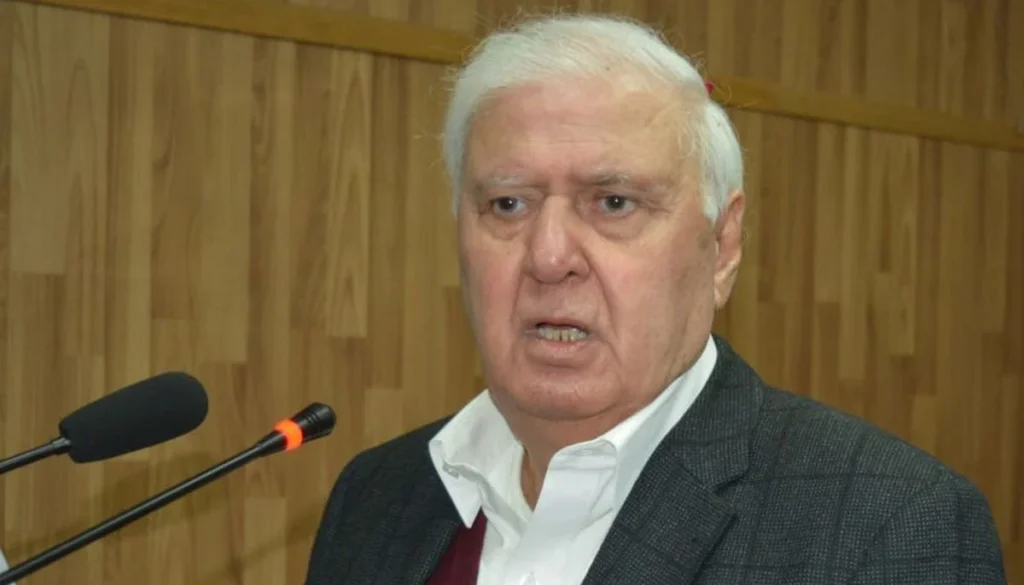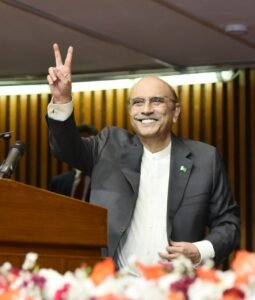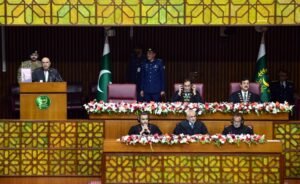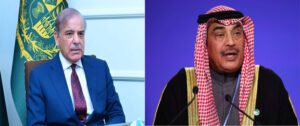Meraj Hamayun Khan
A strong rumour circulating among those who keenly follow the political developments in the country is that Aftab Ahmad Khan Sherpao may be appointed the Governor of Khyber Pakhtunkhwa in the new political setup being quietly shaped. How this decision would influence the political culture of the province is difficult to predict at this stage. One can only reflect on the man himself — his journey, his temperament, his legacy — and allow the readers to draw their own conclusions. Though I am related to the Sherpao family through marriage connections, and one of his sisters was a dear friend of my mother’s, I did not personally know Khan Sahib until he invited me to join his party in 2009 — then called the Pakistan Peoples Party (Sherpao). For eight months I resisted, though I felt flattered that one of Khyber Pakhtunkhwa’s most prominent politicians had taken political interest in me. At the time, I was deeply engrossed in my work at De Laas Gul, my NGO dedicated to education and women’s empowerment, and had no intention of re-entering politics after the disappointment I experienced as the first provincial president of the newly created Pakistan Tehreek-e-Insaf in 1996–97. Yet, Sherpao’s quiet persistence and the counsel of mutual friends eventually persuaded me. I joined his party in 2010 — and once I did, I threw myself wholeheartedly into strengthening it. As a professional in development and education, I could see the potential that the party held — not just as a regional force, but as one capable of playing a vital role in national politics.
The central figure then, as now, was Aftab Ahmad Khan Sherpao — a man whose courteous manner, vast experience, sharp memory, patience, and measured tone mark him as a true leader. The proof lies in his record: he successfully led the Pakistan Peoples Party in the province after the tragic assassination of his beloved brother, Hayat Muhammad Khan Sherpao, in 1975 — a loss that altered the political landscape of the region. Later, as the founder and chairman of his own platform, first the PPP–Sherpao and later the Qaumi Watan Party (QWP), he navigated the turbulent currents of provincial politics with rare composure and focus. Under his leadership, the party not only secured representation in the provincial assembly but also played kingmaker roles in coalition governments — quietly influencing key decisions in governance.
Aftab Khan’s career spans decades — from his disciplined early years in the Pakistan Army, where he served as a Major in the Armoured Corps, to his multiple terms as Chief Minister of Khyber Pakhtunkhwa (then NWFP), and later his stints in the federal cabinet, including as Interior Minister of Pakistan. It is this blend of military discipline and civilian governance that makes him, perhaps, an ideal candidate for the governorship. He has weathered crises that would have broken lesser men: the deep wounds of political betrayal, two near-fatal suicide attacks during his tenure as Interior Minister, and the constant challenges of keeping a regional party afloat in a shifting national landscape. Yet through all this, his tone remained calm, his approach balanced, and his sense of duty unshaken. His courage in facing militancy, his compassion for the less fortunate, and his quiet humility are qualities that command both respect and affection. If appointed Governor, Aftab Ahmad Khan Sherpao would bring to the post not just experience, but equilibrium — a capacity to cool political temperatures in a province often caught between centre and periphery. His long-standing call for dialogue, reconciliation, and institutional strengthening could open a new chapter for the province — one rooted in stability and cooperation rather than confrontation. As for the rumour itself, Sherpao Khan remains characteristically silent. He neither confirms nor denies it. This, too, is part of his leadership style — a silence not of hesitation, but of thought. He reflects deeply before he speaks, and when he does, his words carry weight. His consultation meetings are known to be long and inclusive; he listens patiently to every participant, regardless of rank or seniority. It is in these quiet, thoughtful gestures that one sees the man behind the title — a soldier turned statesman, a survivor of tragedy, and a leader who continues to serve his people with dignity, grace, and an unspoken wisdom that only decades of experience can bring.








